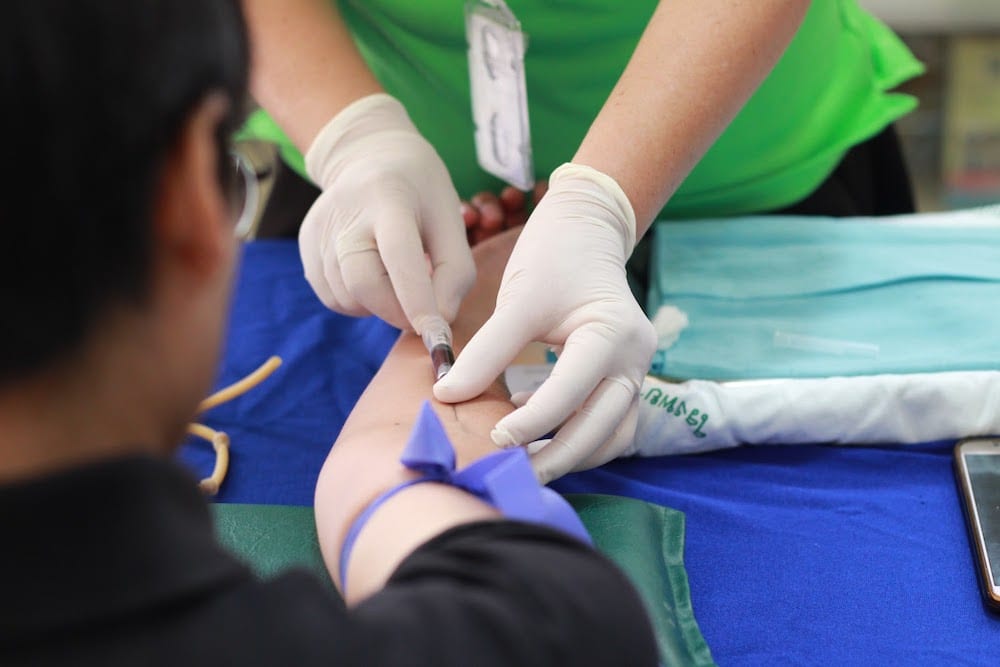If you’re interested in healthcare and becoming a nurse practitioner, then we’re here to help you learn what essential nursing skills you’ll need to succeed.
Nursing is a great choice if you want to help others improve their health and well-being. To acquire a nursing position, you will need to show dedication, resilience, technical ability, and more. If you are interested in learning more about nursing skills and how to build them, and also where to find the best nursing programs, then read on.
What Are Nursing Skills?
The nursing skills listed below are fundamental soft skills required to become a good nurse. We have explained these skills in detail so you can consider whether a profession in nursing is right for you.
Communication
Effective verbal and written communication skills with patients, their families, and other medical staff are essential. In nursing, you will be regularly communicating with people as it is a key part of providing proper patient care.
Patient Care
Dealing with people in a hospital setting requires a level of emotional control and understanding. Skills that apply here are active listening, patience, and emotional resilience.
You will learn quickly as difficult conversations with upset patients and their family members are inevitable. Remaining professional while understanding what they are going through and resolving their issues are qualities of a skilled nurse.
Critical Thinking
Critical thinking is an important skill for all nurses as you will need to apply it to your patient care. For example, when giving a patient medication, you will need to know how that medication will affect the patient. Therefore, nurses must try to think two steps ahead.
Technical Ability
After years of study, you will need to demonstrate excellent medical and technical ability. From administering medications to taking blood samples, there’s no doubt that these skills will be necessary. It will take time to perform these tasks correctly, so a keen passion for continued learning is important.
Attention to Detail
In nursing, sometimes it is the smallest details that can affect your patients. Whether it’s a change in a patient’s mental well-being, blood pressure, or something else, you must consider these small details when you are providing care. So pay attention to the minutiae as it could be important in restoring a patient’s health.
Other Necessary Nursing Skills
- Cultural awareness
- Compassion
- Infection control
- Leadership
- Observational
- Catheterization
- IV therapy
- Lab testing
- Monitoring vital signs
How to Improve Your Nursing Skills

No matter what education or employment level you are currently at, you should be continuously working to build on your existing nursing skills. Below are some skills you can improve on to become a better nurse.
Critical Thinking
Practice thinking a few steps ahead. For example, you can imagine a theoretical patient with a specific ailment and consider the different medications you could provide them, and the subsequent consequences of each. Further, you can analyze your daily work routine and consider the potential implications of your actions.
Communication
Whether written or verbal, there are always options to develop your communication skills. To learn how to send professional emails, you may want to see what resources are available online or sign up for a study program to become a better writer. There are also courses in verbal communication that you can take to work on your teamwork and patient care skills.
Technical Skills
This will require years of nursing study and practice. Simple methods for gaining technical skills include writing down the answers to common questions and studying them. For an example of a more hands-on approach, you can learn how to give injections better by starting practicing on inanimate objects, such as fruit or specially made plastic models.
Emotional Resilience
The ability to approach problems and people with a positive mindset is extremely useful in nursing. The smallest adjustments to your thinking can make a difference. For example, instead of seeing feedback as a sign of failure, think of it as a way for you to better yourself. Remember to take a deep breath when emotions are running high and discuss any issues with your superiors so they may offer guidance.
Top Nursing Programs and Certifications
To become a registered nurse, you will typically need to do a three- to four-year bachelor’s program (or second bachelor’s). Then, students usually have to complete a two-year Master of Science in Nursing (MSN) and may even choose to complete a PhD or Doctor of Nursing Practice program.
Nurses are required to pursue higher education as the field of medicine is complex. Below is a list of several programs and certificates that will put you on the path toward a successful nursing career.
Johns Hopkins University
Courses:
MSN Entry into Nursing Program
MSN Healthcare Organizational Leadership/MBA Dual Degree
MSN Public Health Nursing/MPH Joint Degree
Doctor of Philosophy in Nursing (PhD)
DNP Advanced Practice/PhD Dual Degree Program
Level: Master’s to Doctorate
On-Campus + Online Programs
Johns Hopkins University offers students a variety of learning tracks, from pre-licensure programs to master’s, PhD, and DNP programs. To be accepted, students are required to have a bachelor’s degree in a discipline other than nursing from an accredited college or university, with a GPA of at least 3.0.
Duke University
Courses:
Accelerated Bachelor of Science in Nursing

"Career Karma entered my life when I needed it most and quickly helped me match with a bootcamp. Two months after graduating, I found my dream job that aligned with my values and goals in life!"
Venus, Software Engineer at Rockbot
MSN Adult-Gerontology Nurse Practitioner – Primary Care
MSN Neonatal Nurse Practitioner
MSN Pediatric Nurse Practitioner – Acute Care
Level: Bachelor’s to Doctorate
On-Campus + Online Programs
Duke’s MSN Family Nurse Practitioner degree is ranked as the No. 1 online course by US News & World Report. Duke offers something for everyone, with the courses listed above and others for students seeking postgraduate nursing training.
University of North Carolina-Chapel Hill
Courses:
Bachelor of Science in Nursing
Doctor of Philosophy in Nursing
Adult Gerontology Acute Care Nurse Practitioner
Level: Bachelor’s to Doctorate
On-Campus + Online Programs
UNC Nursing offers an array of programs, and much like the first two colleges, it has a mixture of on-campus and online courses. It has been ranked among the top three public schools for nursing, offering a valuable education at a lower cost than its private counterparts.
Should I Become a Nurse?

If you are still wondering if nursing is a worthwhile career and skill set for you, then take some time to consider whether you enjoy helping others and want to learn about the field of medicine. If so, remember that you will be working with a team of medical professionals to help patients recover and move on to happier, healthier lives.
We hope this article has helped you better understand the range of skills that go into nursing, and what courses to take so that you can land a job. Whether you are interested in a pre-nursing program, an online nursing program, or a master’s degree in nursing administration, choose the path that’s right for you.
About us: Career Karma is a platform designed to help job seekers find, research, and connect with job training programs to advance their careers. Learn about the CK publication.



